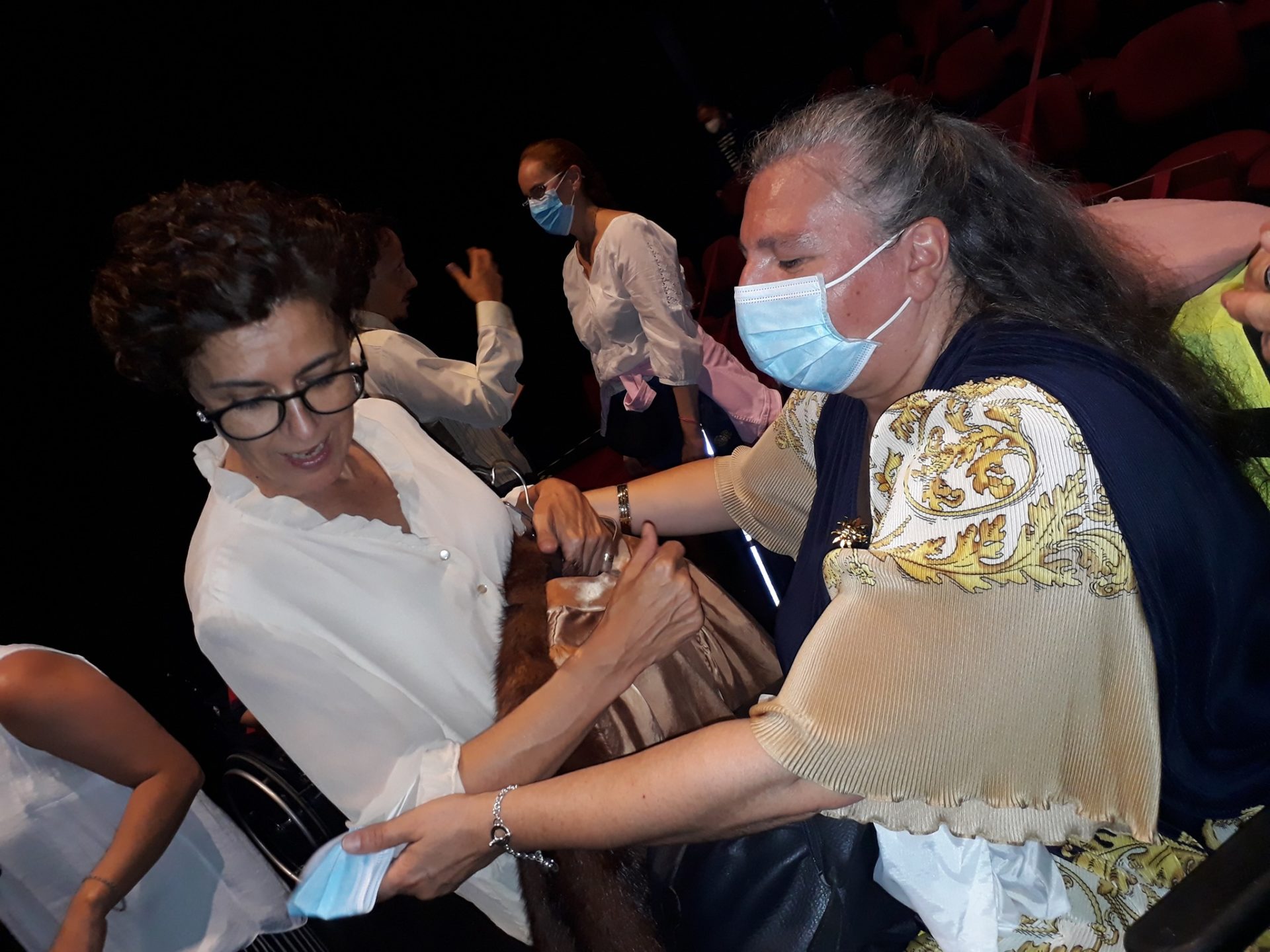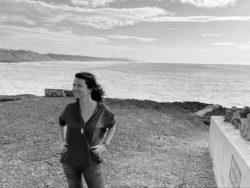The Difference that Blindness Makes…

By Cintya Floriani Hartmann
From an image-dependent professional (television journalism producer) to conducting PhD research on blindness as an existential condition…this is the beginning of the journey that led me to know ETHER.
How does a blind person survive in a world dependent on images and appearances? How is the experience of being “the other” in an ocularcentrist culture? Why is blindness a difference in the other that makes me afraid?
To answer these and all the questions that aroused my curiosity about the condition of blindness, I started to observe the experience of the blind person in the theatre audience. If in the theatrical event another reality is created, the translation of the blind person's experience could reveal what theatre reception studies have not yet been able to determine, such as the energy and magic power of creating another world in the theatrical event. And, by being able to determine the ‘phenomenon’ of the event through the translation of the theatrical experience under the condition of blindness, I would be approaching the knowledge that the other has in their difference.
the experience of the blind person in the theatre audience challenges the theatrical practice as a place of community formation, co-creation, heterotopia and utopia
The Theatron's etymology was the initial provocation. Although the practice of “the place where you see” or “where you go to see” has surpassed its etymology, working from the blindness experience challenges alternatives too. When considering approaches to theatre as a meeting place for a community experience (Schechner 1977), as the locus of the phenomenon of experience (States 1985; Garner 1994); a political place where utopia is built (Dolan 2005; Boal 2008; Rancière 2014; Ridout 2016), or a place of an event co-created between the public and artists, a producer of a circuit of exchange of invisible energies (Fischer-Lichte 2008), I work with the hypothesis that the experience of the blind person in the theatre audience challenges the theatrical practice as a place of community formation, co-creation, heterotopia and utopia. A challenge that, if taken on, can offer to the artistic creation a knowledge produced by a body condition that must permanently create a world that cannot be seen.
In my search for answers, I came across the ETHER Project and, with it, I could think of a practical laboratory for hypotheses.
We are now planning the “Oficina da Diferença” ( “The Difference Workshop”), scheduled to take place on 8th February 2023 in Lisbon, with the support of the Centre for Theatre Studies - School of Arts and Humanities (University of Lisbon) to which my investigation is attached, and the Acesso Cultura, a cultural association for access to cultural participation in Portugal.
Between sound and silence, light and shadow, movement and immobility, what a performance emanates and what the public create from it, a transforming aesthetic experience is possible if the engine of the creation for this experience includes dissent.
The “Oficina da Diferença” involves a group of 30 artists, with and without disabilities, on an intensive journey that will begin with theoretical and practical reflections offered by the ETHER Keynote speaker, Dr. Charlotta Palmstierna Einarsson from MID Sweden University, followed by an experience of collective creation mediated by the Portuguese Director Marco Paiva, whose creative work has been marked by inclusion as the genesis of creation.
Through the encounter with the 'other' and the individualities it reveals, the workshop wants to offer an opportunity to approach artistic creation from the perspective of the diversity that individual differences offer. The difference will be experienced as a creative power with the evidence of the dissent as a power for creating 'another world'. Between sound and silence, light and shadow, movement and immobility, what a performance emanates and what the public create from it, a transforming aesthetic experience is possible if the engine of the creation for this experience includes dissent. The encounter with the difference of the 'other' should allow artists, with and without disabilities, to reflect on their own individualities and experience creation from the dissent that diversity promotes.

Cintya Floriani Hartmann is a Doctoral Candidate at the Centre for Theatre Studies - School of Arts and Humanities (University of Lisbon). The photo was taken by her blind friend, Rafael Silva.
